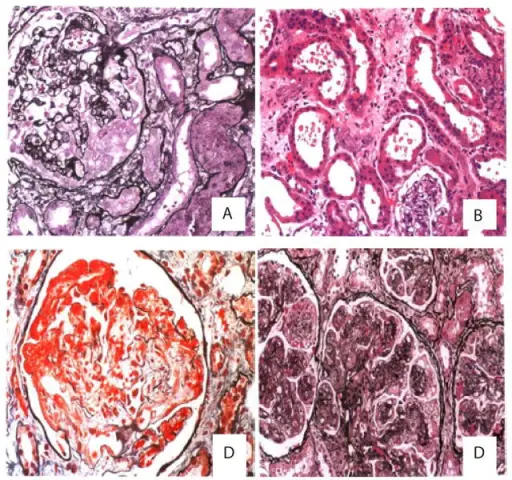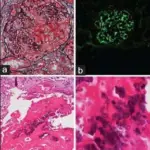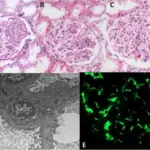Glomerulonephritis associated with systemic infections is the infection manifestation syndrome of the kidney in which an immunologic mechanism initiates inflammation and proliferation of glomerular tissue.
What is the Pathology of Glomerulonephritis Associated with Systemic Infections?
The pathology of glomerulonephritis associated with systemic infections is:
-Etiology: The cause of glomerulonephritis associated with systemic infections is infections.
-Genes involved: Unknown.
-Pathogenesis: The sequence of events that lead to glomerulonephritis associated with systemic infections
-Morphology: Not applicable.
-Histology: Lymphocytic infiltrate of glomeruli.
How does Glomerulonephritis Associated with Systemic Infections Present?
Patients with glomerulonephritis associated with systemic infections typically are both female and male present at the age range of 20-60 years. The symptoms, features, and clinical findings associated with glomerulonephritis associated with systemic infections include pink or cola-colored urine, hematuria, foamy urine, and proteinuria.
How is Glomerulonephritis Associated with Systemic Infections Diagnosed?
Glomerulonephritis associated with systemic Infections is diagnosed through blood tests, urinalysis, and kidney biopsy.
How is Glomerulonephritis Associated with Systemic Infections Treated?
Glomerulonephritis associated with systemic infections is treated with immunosuppressors, dialysis.
What is the Prognosis of Glomerulonephritis Associated with Systemic Infections?
The prognosis of glomerulonephritis associated with systemic infections is fair since once the infections are managed it can be resolved.



